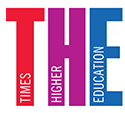Survey finds that rates of depression and anxiety more common among low-income, female, ethnic minority, LGBTQ and arts students
The share of US postgraduate students suffering from depression has more than doubled during the coronavirus pandemic, according to a major survey of students at nine public research universities.
A survey of 30,725 undergraduates and 15,346 postgraduates by the Student Experience in the Research University (SERU) Consortium, based at the University of California, Berkeley, found that 35 per cent of undergraduates and 32 per cent of postgraduates screened positive for major depressive order, while 39 per cent of both cohorts screened positive for generalised anxiety disorder.
Both disorder rates were more pronounced among low-income students, students of colour, women and non-binary students, LGBTQ students and students who are caregivers, according to the study, which was conducted between May and July 2020. The rates were also higher among students who did not adapt well to remote instruction.
When comparing the results with an equivalent survey carried out by the SERU Consortium in spring 2019, the data reveal that the share of postgraduates suffering from mental health disorders has increased as a result of the pandemic. The prevalence of depression among postgraduate and professional students is two times higher in 2020 compared with 2019, while the prevalence of anxiety is one and a half times higher this year.
The research also found that students in arts, humanities, communication and design fields were particularly vulnerable to mental health problems. Almost two-thirds (63 per cent) of postgraduates studying English language and literature tested positive for anxiety, while 51 per cent tested positive for depression. Social and behavioural science students were also more likely to suffer from mental health disorders.
The study recommends that academics and staff in these departments receive additional training on how to identify mental health risks and refer students to appropriate resources on campus. It also suggests that universities provide extra mental health support to students who struggle with remote instruction.
Igor Chirikov, senior researcher and director of the SERU Consortium, said the impact of the pandemic on student mental health was “alarming”, with the prevalence of disorders among marginalised subpopulations “especially worrisome”.
He said the differences between disciplines could be explained by the demographic composition of the student body (for instance, arts and humanities fields enrol more female students, who have a higher prevalence of anxiety and depression), the nature of their learning experience, the way academics organised remote instruction and the extent to which the pandemic affected their research and career prospects.
“We will explore the role of these factors in our future research,” Dr Chirikov added.
He said universities must allocate more resources for a potential increase in students’ requests for mental health services and proactively publicise these services, while academics could embed mental health resources in their classes, for instance by including mental health modules in their learning management software programmes.

0 Comments